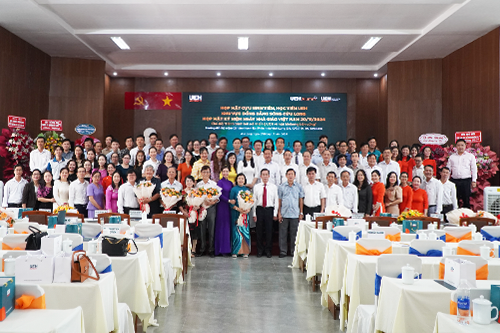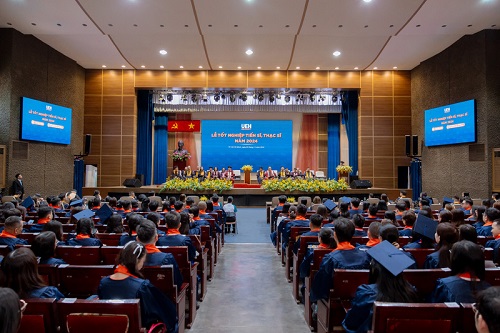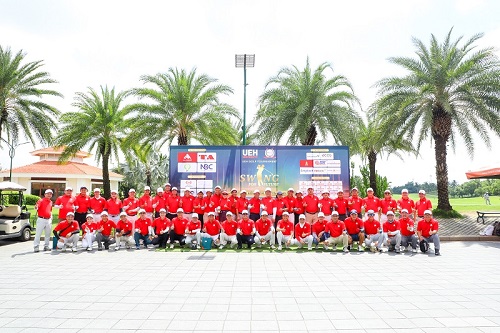
University of Economics Ho Chi Minh City: Teach what learners really need
24 May, 2021
[Tuoi Tre Newspaper] Training cultured and talented people with broad and deep knowledge, meeting the requirements of the trend of internationalization and global competition is the output standard that has been built and applied by the University of Economics Ho Chi Minh City for nearly ten years.

Discussing with Tuoi Tre about this issue, Assoc. Prof. Dr. Nguyen Khac Quoc Bao - Head of the Department of Undergraduate Training, former Head of the Department of Finance at the University of Economics Ho Chi Minh City (UEH) - said: Since 2013, UEH has completely reviewed to renovate training programs in the direction of approaching international advanced programs.
At that time, the University's leader clearly stated that the main motto was: "To ensure that students are taught the really necessary knowledge, closely following the training content of the leading economic and business universities in the world."
* The UEH Department of Finance is a reference unit for training programs of top 100 universities in the world to build output standards. What similarities do these programs have, Sir?
- One of the things we like most about the way their program is built lies in the training philosophy and the program's output standards.
They especially emphasize the criterion: "having broad and deep knowledge".
Broad is to ensure a general knowledge base, ready to adapt to the increasingly rapid changes of the global economy in the face of continuous "shocks", especially in technology, innovation and creativity.
Deep is for learners, after graduation, to master professional knowledge to be able to work smoothly and effectively in each specific field.
* Can you share more about the training philosophy that underpins the output standards of the faculty's training programs?
- Inspired by such philosophies, with concerns after a long period of studying and teaching Economics - Finance to many generations of students, we have summarized the educational philosophy to make the cornerstone and orientation for the output standards of the training program: "Training people who are cultured and talented with broad and deep knowledge, who can flexibly response to increasingly strict requirements and diversity of a rapidly growing economy in the trend of internationalization and global competition".
We believe that learners who are fully developed at the university level, in the economic field must meet both factors.
Having broad knowledge and broad understanding of many fields of socio-economic life but still having specific in-depth expertise to create a competitive advantage in the labor market and develop one's career.
We expect our students, after graduation, to immediately meet the requirements of the labor market, have jobs that match their trained expertise, and have a reasonable income.
Or if they want to continue their studies at a higher level in the country or abroad, they can do so easily without any difficulty.
To achieve these goals, in the current context of strong socialization of education, the principle of students being "cultured and talented" is the most important.
* How are the criteria "cultured, talented, having broad and deep knowledge" evaluated by the university?
- University leaders strongly support this point of view and create many conditions for us to gradually realize that philosophy. The university's scientific council discussed very carefully before going to review and approve the content of each subject.
In particular, the university boldly invests in the curriculum system. For teaching and learning to be practical and effective, we require lecturers to use textbooks mainly from classic textbooks that are widely taught and popular in universities around the world.
The university's leaders set the principle that "which books students in foreign schools learn, UEH students learn them". Up to now, UEH's curriculum system has almost reached the standard of universities around the world.
* Over the past decade, many generations of graduating students have proven that the training philosophy and output standards are appropriate?
- Every year, UEH organizes a conference for employers to listen to their comments and contribute to UEH's training quality and output standards.
Besides the objective and practical opinions for us to continue to improve, they highly appreciate the academic ability and professional knowledge of our students. They agree and support that we determine the university's output must be "cultured and talented" people.
Source:











